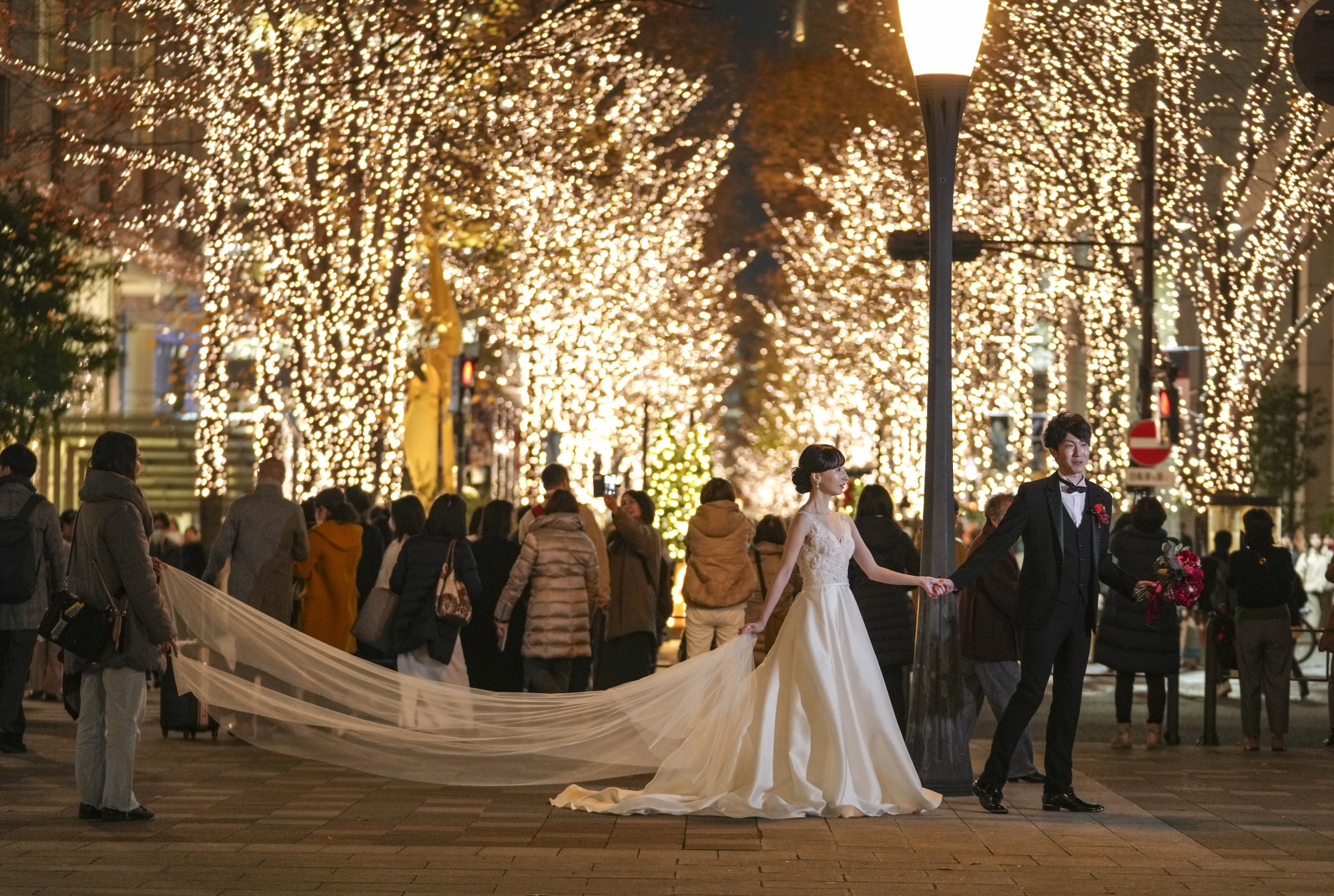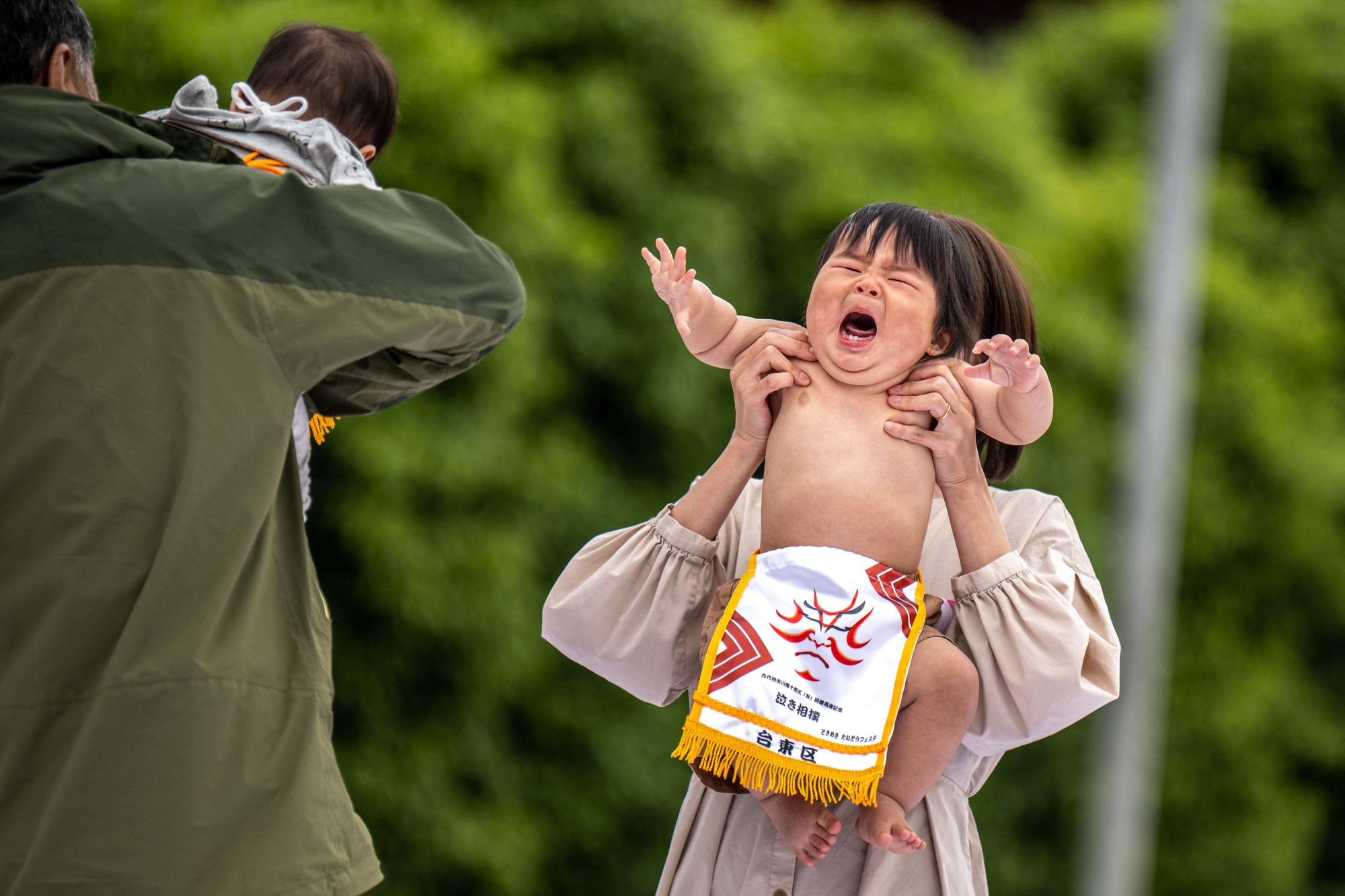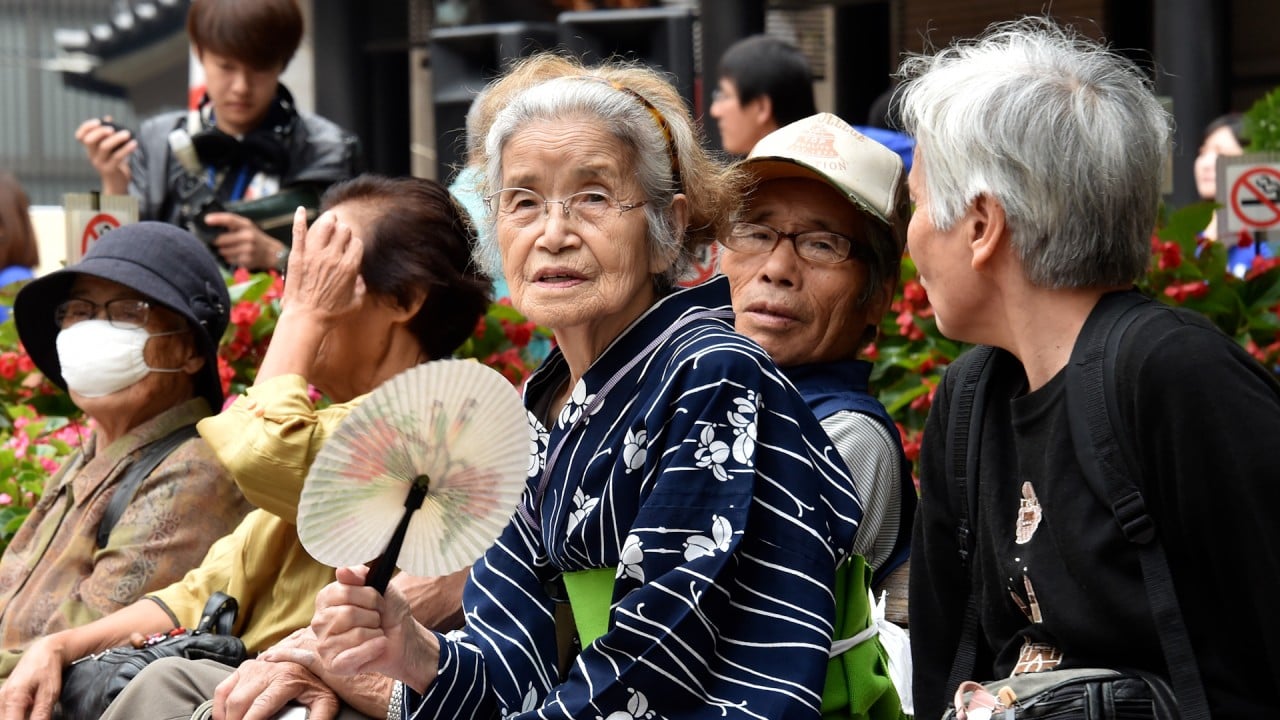Will Japan see more marriages with Tokyo’s taxpayer-funded AI-driven dating app or it is just ‘throwing money away’?
[ad_1]
The Tokyo metropolitan government is playing Cupid with the city’s millions of unmarried residents, launching an AI-driven app to transform singletons into couples.
A test version of the app was launched late last year, with the full version of Tokyo Futari Story going live in the spring, the city said. The stringent registration process includes indicating one’s salary and paperwork to verify one’s single status, while artificial intelligence technology pairs candidates based on their specified values.
It would appear that there is a need for the new service, as the National Institute of Population and Social Security Research estimates that more than 32 per cent of men over the age of 50 living in Tokyo have never been married, along with 23.79 per cent of women, the Nikkei reported recently. For the two genders, those are the highest figures in every prefecture of Japan.
Japan wants more people to marry, have children, so it turns to Studio Ghibli
Japan wants more people to marry, have children, so it turns to Studio Ghibli
Critics, however, are not convinced that yet another dating app is the solution to singles’ problems, especially one funded by taxpayers. Instead, they suggest that the city and national governments do more to address the fundamental reasons why people are not getting married and having children.
One of the most frequently cited reasons why Japanese prefer to remain single and thus contribute to the country’s population decline is the lack of finances to marry and raise children.
In a statement to This Week in Asia, an official of the Tokyo government’s Citizen Life Department said a survey conducted in 2021 showed 70 per cent of people who wanted to get married were hampered from doing so because they did not know how to meet potential partners and were “not comfortable” using private matchmaking companies. The same survey, conducted in 2018, returned the same figure.
“As a result, to provide opportunities for those who are not engaged in marriage-hunting activities to start, we have decided to create meeting opportunities through the AI-matching system and exchange events,” the official said.

The agency hopes the system, which is operated by a private company, “will lead to the fostering of marriage momentum in society as a whole”.
A limited number of men and women are testing the beta system, the official said, although there are no figures available on how many people are registered and whether any of them have had success in finding a life partner.
Anyone joining the paid-for service will be required to provide documentation to prove they are not married and are over the age of 18, as well as a recent photo. The app is also for people who live, work or study in Tokyo. More worryingly for some, the app will require users to provide documents that confirm their annual incomes.
The paperwork will be closely examined, as one of the primary concerns among people who join dating sites is a lack of honesty by other users with the personal data they provide. Applicants will also be required to undergo an online interview before they are introduced to potential partners.
Once approved, users will be required to list their “values” and those they seek in a partner. AI will then be used to link people with compatible values. The city also said that staff members would be available to provide consultations and advice.
Once potential partners are introduced, the operator of the site will step back and let love run its course, according to the official.

The Tokyo Futari Story website lists Step 7 in the process as: “If the two of you wish, it will be a one-on-one serious relationship. All other partner introductions and arranged meetings will be suspended.” The final step is a sketch of a couple in wedding outfits.
The initiative has been welcomed by some, with social media messages on the Hachima Kiko entertainment blog saying something had to be done to reverse the nation’s rapidly declining birth rate. Other netizens pointed out that there was less likelihood of the site being used for casual pickups, given the stringent requirements to join the programme.
Others were less complimentary, with one calling the plan “pointless” as there are already countless dating sites available, and another adding that Tokyo is “just throwing money away”. Another message referred to users of the dating website as “losers”.
Sumie Kawakami, an instructor at Yamanashi Gakuin University who focuses on women and gender issues, also had deep misgivings about the scheme – although she acknowledged that the latest national population figures make deeply worrying reading.
“In general, I do not agree with the national or local governments spending money on this kind of programme, even though it is clear that we do have a population problem,” she told This Week in Asia.
In a report released in December, the population of all of Japan’s prefectures except Tokyo will fall from their present levels by the year 2050, with the total population shrinking 17 per cent to 104.69 million from 125.7 million at present.
“My feeling is that the authorities, at both the national and local levels, should be investing more money and effort in dealing with the underlying problems of why people are not dating, getting married and having children,” Kawakami said.
“More needs to be done to help poorer families, to assist single mothers, to provide better childcare services, to bring down the cost of having a child and to let people take more time off work or at least come home at a reasonable time after work to be with their families,” she said.
“Yes, we have problems, but I don’t think it is because people do not want to be married and have children; it’s because they cannot afford to,” she added.
[ad_2]
Source link


